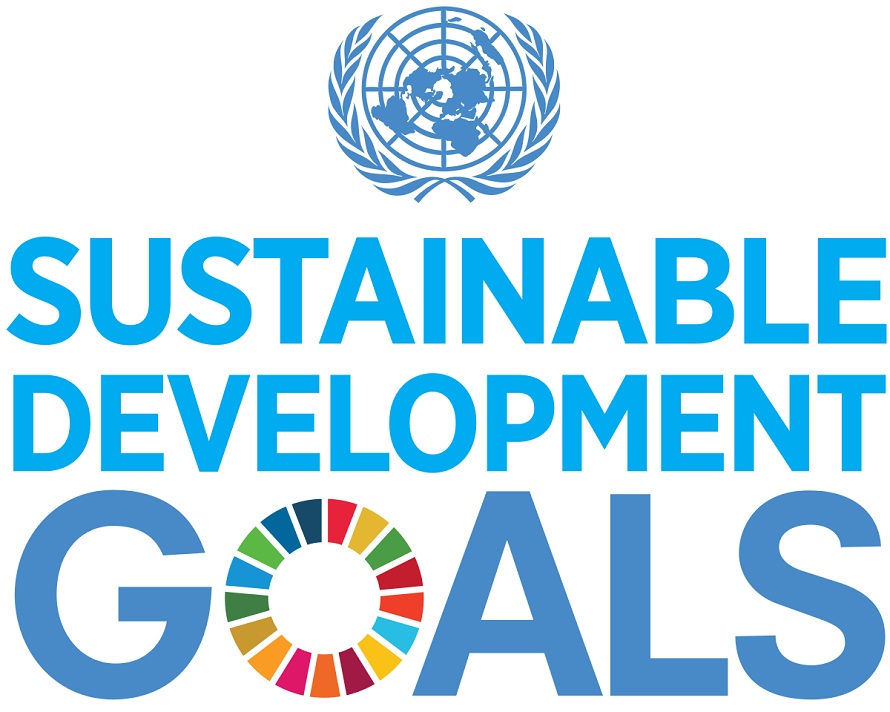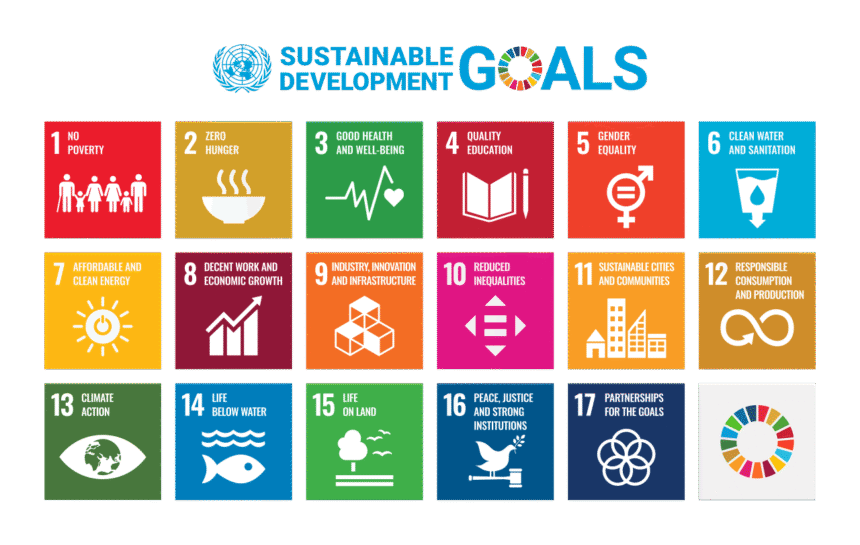Understanding Sustainable Development Goals (SDGs): A Path to a Better Future
Sustainable development is a global priority, and at the heart of this mission lies the Sustainable Development Goals (SDGs). These 17 goals, established by the United Nations in 2015, aim to tackle the world’s most pressing challenges by 2030. They focus on achieving a balance between economic growth, social inclusion, and environmental protection. This article will provide a detailed guide to the SDGs, their significance, and how individuals, businesses, and governments can contribute to achieving these global objectives.
.png)
What Are the Sustainable Development Goals?
The Sustainable Development Goals are a universal call to action aimed at promoting prosperity while protecting the planet. These goals address a wide range of issues, from poverty eradication to climate action. Each of the 17 SDGs is interlinked, and achieving one often contributes to the success of another.
The 17 Sustainable Development Goals
-
No Poverty: End poverty in all its forms everywhere.
-
Zero Hunger: End hunger, achieve food security, improve nutrition, and promote sustainable agriculture.
-
Good Health and Well-being: Ensure healthy lives and promote well-being for all at all ages.
-
Quality Education: Ensure inclusive and equitable quality education and promote lifelong learning opportunities for all.
-
Gender Equality: Achieve gender equality and empower all women and girls.
-
Clean Water and Sanitation: Ensure availability and sustainable management of water and sanitation for all.
-
Affordable and Clean Energy: Ensure access to affordable, reliable, sustainable, and modern energy for all.
-
Decent Work and Economic Growth: Promote sustained, inclusive, and sustainable economic growth, full and productive employment, and decent work for all.
-
Industry, Innovation, and Infrastructure: Build resilient infrastructure, promote inclusive and sustainable industrialization, and foster innovation.
-
Reduced Inequality: Reduce inequality within and among countries.
-
Sustainable Cities and Communities: Make cities and human settlements inclusive, safe, resilient, and sustainable.
-
Responsible Consumption and Production: Ensure sustainable consumption and production patterns.
-
Climate Action: Take urgent action to combat climate change and its impacts.
-
Life Below Water: Conserve and sustainably use the oceans, seas, and marine resources for sustainable development.
-
Life on Land: Protect, restore, and promote the sustainable use of terrestrial ecosystems, manage forests sustainably, combat desertification, halt and reverse land degradation, and halt biodiversity loss.
-
Peace and Justice Strong Institutions: Promote peaceful and inclusive societies for sustainable development, provide access to justice for all, and build effective, accountable, and inclusive institutions at all levels.
-
Partnerships for the Goals: Strengthen the means of implementation and revitalize the global partnership for sustainable development.
These goals are comprehensive, addressing social, economic, and environmental dimensions of development. They recognize the interconnectedness of various global challenges and emphasize a holistic approach to sustainable development.

Why Are the SDGs Important?
The SDGs are crucial because they provide a universal framework for addressing the world’s challenges and shaping a more sustainable future. They help guide governments, businesses, and individuals toward achieving economic equality, environmental protection, and social well-being. Here’s why they matter:
1. Tackling Global Issues
The SDGs focus on solving some of the most pressing issues humanity faces today, including poverty, inequality, hunger, and climate change. By addressing these challenges together, the SDGs ensure a comprehensive and effective response to global crises.
2. Promoting Global Cooperation
The SDGs foster global cooperation, encouraging countries to work together to achieve shared objectives. They offer a common language for all stakeholders—governments, businesses, civil society organizations, and individuals—to collaborate and take collective action.
3. Guiding Policy and Action
The SDGs provide a roadmap for policymakers to create laws and initiatives that contribute to global sustainability. Governments around the world have adopted these goals to guide their national policies and strategies.
4. Promoting Corporate Responsibility
Businesses also have a role to play in achieving the SDGs. By aligning their strategies with the SDGs, companies can make a positive impact on society while simultaneously improving their operations and enhancing their brand value.
How Are the SDGs Measured?
The United Nations has established clear indicators to measure progress toward the achievement of the SDGs. These indicators are used to track global and national progress on each of the 17 goals. The measurements include both quantitative and qualitative data, ensuring a comprehensive assessment.
Key Indicators for Measuring Progress
-
Percentage of people living below the poverty line (Goal 1: No Poverty)
-
Malnutrition rates (Goal 2: Zero Hunger)
-
Access to education (Goal 4: Quality Education)
-
Gender disparities in employment (Goal 5: Gender Equality)
-
Access to clean water and sanitation (Goal 6: Clean Water and Sanitation)
These indicators are regularly updated to reflect changes and progress made toward achieving the SDGs.
How Can We Contribute to Achieving the SDGs?
While the SDGs may seem like goals for governments and large organizations, individuals also have a role to play. Here are some practical ways you can contribute to achieving the SDGs:
1. Educate Yourself and Others
Knowledge is the first step toward action. By understanding the SDGs and their significance, you can better advocate for these global goals. Share information with your friends, family, and community to raise awareness.
2. Practice Sustainable Consumption
Adopt sustainable habits in your daily life. For example, reduce waste, conserve water, recycle, and choose products that are environmentally friendly. By making these small changes, you contribute to goals such as responsible consumption (Goal 12) and climate action (Goal 13).
3. Support Sustainable Businesses
Support companies that align their operations with the SDGs. Look for businesses that prioritize environmental responsibility, ethical labor practices, and social impact. This helps promote sustainable production and consumption patterns.
4. Advocate for Policy Changes
Engage with your local government representatives to encourage the adoption of policies that support the SDGs. Participate in campaigns and advocacy efforts aimed at driving sustainable development in your community.
5. Reduce Your Carbon Footprint
One of the most effective ways to contribute to the SDGs is by reducing your carbon footprint. Use public transportation, adopt energy-efficient technologies, and reduce meat consumption to help mitigate climate change.
The Role of Governments in Achieving the SDGs
Governments play a crucial role in implementing the SDGs by creating policies, allocating resources, and ensuring that the goals are integrated into national development plans. Here are some ways governments can contribute:
-
Policy Formulation: Governments must develop and implement policies that address climate change, inequality, and other SDG-related challenges.
-
Investment in Green Technologies: Investing in renewable energy, energy-efficient infrastructure, and other green technologies is essential for achieving SDGs like Affordable and Clean Energy (Goal 7) and Climate Action (Goal 13).
-
Collaboration with International Organizations: Governments should work with international organizations to align national policies with global sustainability efforts.
FAQs About Sustainable Development Goals
What are the SDGs?
The Sustainable Development Goals (SDGs) are a set of 17 global goals adopted by the United Nations in 2015. They aim to address urgent global challenges such as poverty, inequality, climate change, and environmental degradation by 2030.
Why are the SDGs important?
The SDGs are important because they provide a universal framework for achieving a sustainable future. They promote global cooperation, guide policy decisions, and help individuals and businesses align their actions with global sustainability objectives.
How can I contribute to the SDGs?
You can contribute to the SDGs by educating yourself, adopting sustainable practices in your daily life, supporting businesses that prioritize the SDGs, and advocating for policy changes that support global sustainability.
How are the SDGs measured?
The progress of the SDGs is measured through clear indicators set by the United Nations. These include data on poverty, education, water access, and climate change, which are updated regularly.

Conclusion: The Path to a Sustainable Future
The Sustainable Development Goals offer a vision for a more just, equitable, and sustainable world. While the challenges are vast, the collective efforts of individuals, businesses, and governments can help achieve these global goals. By understanding and supporting the SDGs, we can all play a part in creating a better future for generations to come.
If you want to learn more about how to get involved with sustainable development, visit our Sustainable Development Resources page.
By embracing the SDGs, we contribute to a world where future generations can thrive in a balanced environment, enjoy equal opportunities, and live in peace and prosperity.









